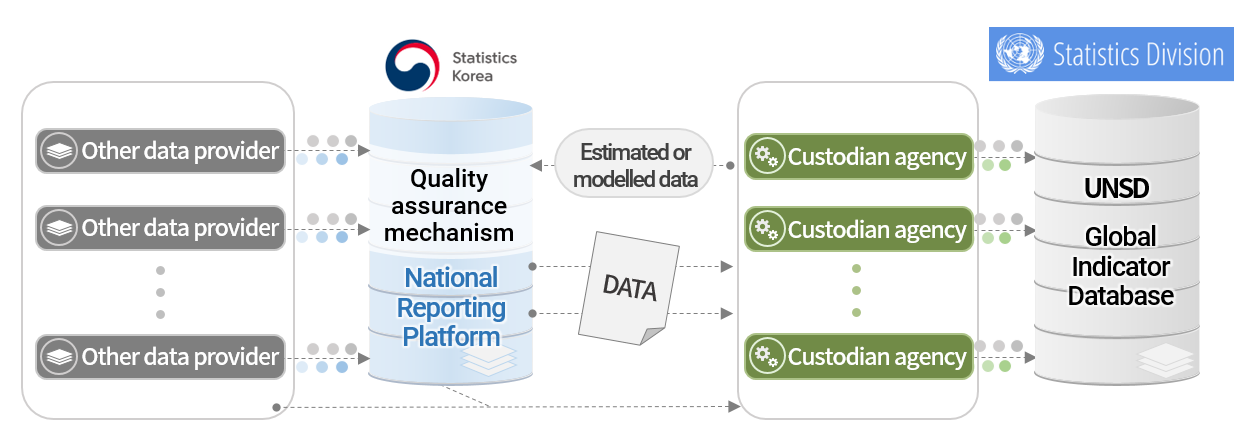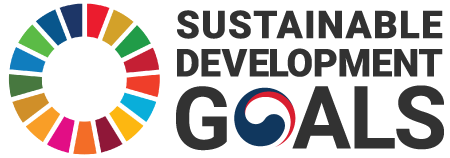Overview of UN SDGs
The Sustainable Development Goals (SDGs) refer to a comprehensive, far-reaching and people-centered set of universal and transformative goals that all countries of the world have agreed to achieve by the year 2030. In 2015, at the 70th United Nations (UN) General Assembly, member states unanimously adopted "Transforming Our World: The 2030 Agenda for Sustainable Development", which contains 17 goals and 169 targets based on people, the planet, prosperity, peace and partnership.The SDGs are followed up and reviewed at the global, regional and national levels every year, based on data provided by each country. This data should have high-quality and reliability. In order to support the principle of inclusiveness such as "Leaving No One Behind", it is emphasized that all indicators are disaggregated by sex, age, income, disability, migration status, geographic location and other characteristics relevant in the national context.
Status of the SDGs implementation in the Republic of Korea
The United Nations Statistics Division released the Global SDG Indicators Database. The Database includes country level data as well as regional and global aggregates. Statistics Korea (KOSTAT) is a focal point for the SDG Indicators in the Republic of Korea, which is responsible for collecting and providing Korean data to the global community including the UN and international organizations. These data are produced by domestic statistical agencies and managed by the quality assurance system of KOSTAT. KOSTAT also reviews the Korean data estimated or modelled by international organizations. National data may be adjusted for international comparability or where data were missing.
